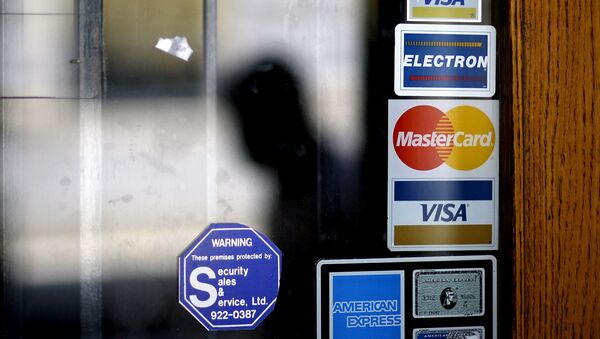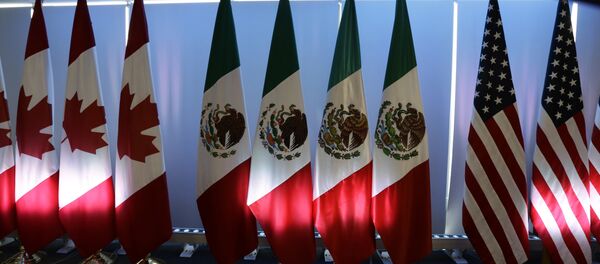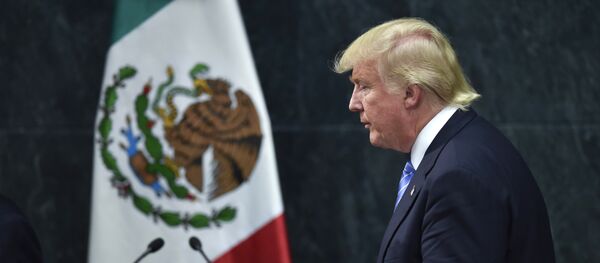Earlier in the day, Trump told reporters at the White House that the United States and Mexico had reached a preliminary deal to replace the 1994 North American Free Trade Agreement (NAFTA). Administration officials told reporters in a conference call that the new 16-year trade deal could be extended even further after a review in 6 years.
The new agreement encourages United States manufacturing and regional economic growth by requiring that 75 percent of auto content be made in the United States and Mexico, the US Trade Representative (USTR) said in a press release on Monday.
The deal also closes gaps in the current NAFTA agreement that incentivized low wages in automobile and parts production and uses trade rules to drive higher wages by requiring that 40-45 percent of auto content be made by workers earning at least $16 per hour, the USTR said.
READ MORE: Trump Administration Does Not Have Authority to Pull US From NAFTA — US Senator
Higher Prices
However, imposing those new rules effectively will come at significant economic cost, retired Brown University Assistant Professor of Economics Barry Friedman told Sputnik.
"If enforcement were effective, it [US-Mexico trade deal] would not be costless," Friedman said. "Prices will rise to US consumers, with higher priced components and enforcement costs going into products assembled in Mexico."
"One can only imagine enforcement by occasional inspection of manufacturing facilities with an opening of invoices from the producers of the components to the companies in the final production," the former professor said.
Such a procedure would be intrusive and costly but necessary under the terms of the agreement, Friedman pointed out.
"Otherwise how does the importer know the origin of components? Enforcement of the wage stipulations would likely be difficult with a lot of records to investigate on a sample basis, and perhaps new surveys completed in Mexico," he said.
Trump during his remarks at the White House said that the United States would immediately begin talks with Ottawa who seemed to be the party left out in the cold by Monday’s announcement. However, later in the day Canadian Prime Minister Justin Trudeau said he held constructive talks with Trump about NAFTA and welcomed the progress in negotiations between Washington and Mexico City.
READ MORE: Mexican President-Elect Wants Friendly Ties With US, to Remain in NAFTA
Friedman cautioned, however, that the Canadians will continue to resent the charge that they are dumping steel and aluminum in the United States below the cost of production.
"As retaliation they [Canadians] still have the option of becoming more independent of US products by shopping abroad and trading for steel and aluminum," Friedman said.
However, users of all such products in all countries will incur higher costs no matter where the products are produced, due to restrictions against the cheapest supply channels, Friedman added.
Political Cost
Political commentator Professor John Walsh told Sputnik that in concluding his new trade agreement with Mexico Trump is hoping to leave a positive impression on voters ahead of the upcoming congressional midterm elections in November.
"Trump is trying to rack up points for the midterms which will be about results versus resistance," Walsh said.
"Ordinarily this would be raised as an issue by US unions afraid of plant closings, but now with the wage stipulations and component requirements, that may be sufficient to mollify the blue collar voters," Friedman commented.
In the past, such groups had traditionally supported the Democrats, but their defection to Trump played a decisive role in swinging Midwest industrial states to him in the 2016 election, Friedman recalled.
Ottawa, Mexico City and Washington have been engaged in talks over the modernization of NAFTA for exactly a year at Trump’s initiative.





